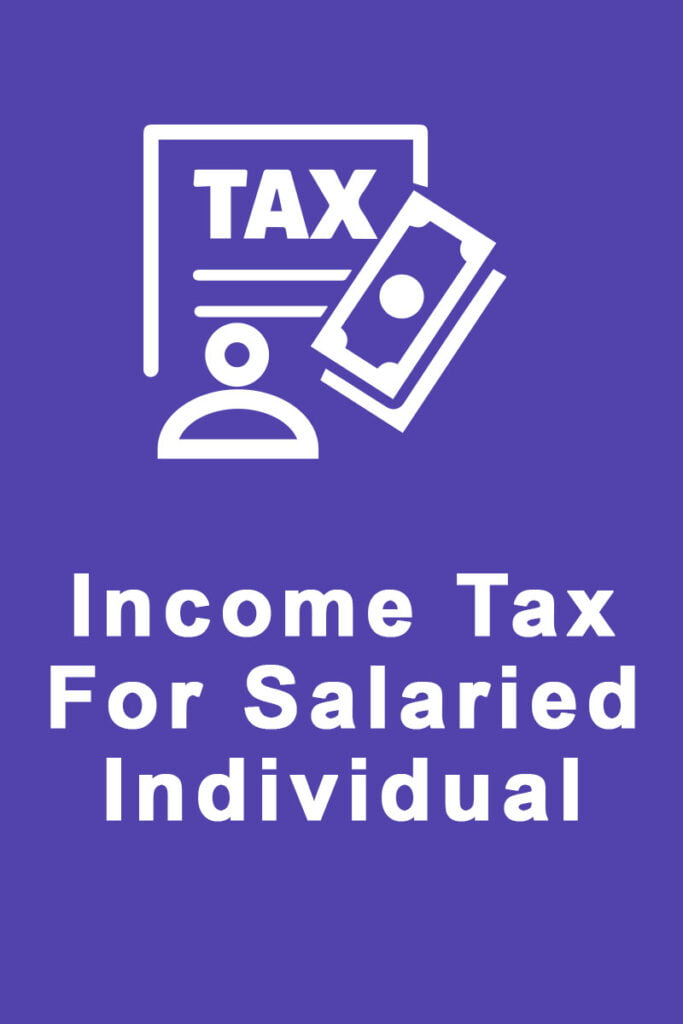(ITR eFiling) Income Tax Filing
| Return Type | Applicability |
| ITR-1 | Those with annual incomes of less than Rs. 50 lakhs from salaries or pensions and only one residential property may use the ITR-1 form. |
| ITR-2 | NRIs, directors of corporations, shareholders of private enterprises, and those with overseas income, capital gains, two or more residential properties, or income exceeding Rs. 50 lakhs must all file ITR-2 forms. |
| ITR-3 | Professionals and people running sole proprietorship businesses in India are required to file the ITR-3 form. |
| ITR-4 | Taxpayers registered in the presumptive taxation system may submit an ITR-4 form. The taxpayer must earn less than Rs. 2 crores in company revenue or less than Rs. 50 lakhs in professional revenue in order to be eligible for the programme. |
| ITR-5 | Partnership firms, LLPs, associations, and groups of people must file an ITR-5 form in order to record their revenue and compute their taxes. |
| ITR-6 | Indian-registered businesses are required to submit the ITR-6 form. |
| ITR-7 | Entities claiming exemption as political parties, scientific research institutions, colleges or universities, charitable/religious trusts, or must complete an ITR-7 form. |
Each year, filing income tax returns is required of all taxpayers, including individuals, NRIs, partnership businesses, LLPs, corporations, and trusts. If an individual or NRI earns more than Rs. 2.5 lakhs annually, they must file an income tax return. Regardless of the amount of income or loss, proprietorship and partnership businesses are required to file income tax returns. Regardless of turnover or profit, filing an income tax return is mandatory for all businesses and LLPs. Income tax filing services are offered by SalahKaro, who also offers specialized help. Upload your Form 16 and then unwind. Within one to two business days, our professionals will file your income tax return and send you an acknowledged Income Tax Return Penalty
A penalty and interest on the late payment of income tax are levied against taxpayers who fail to file their returns on time. Also, the fine for submitting an income tax return after the deadline has lately gone up. The following is the current penalty for filing income tax returns late:
- Late filing fees of Rs. 5000 apply between August 1 and December 31
- Late Submission After December 31st: Rs. 10,000
- Penalty of Rs. 1000 if taxable income is less than Rs. 5 lakhs
Income Tax Return Due Date
Individual taxpayers have until July 31 of each year to file their income tax returns. The deadline for filing income tax returns for businesses and taxpayers who need a tax audit is September 30. The Income Tax Act’s Section 44AD addresses tax audits under the Act.
Business
If a company’s total sales turnover or gross receipts in any prior year exceeded Rs. 1 crore, a tax audit would be necessary.
Professional
If a profession’s or professional’s gross receipts in any prior year exceeded Rs. 50 lakhs, a tax audit would be necessary.
Presumptive Taxation Scheme
If someone is enrolled in the presumed taxation program described in section 44AD? if total sales or revenue exceed Rs. 2 crores, a tax audit would be necessary.
The late filing fee for income tax returns submitted between August 1 and December 31 has been raised to Rs. 5000.
Most enterprises with a revenue of over Rs. 1 crore and professionals with an annual income of over Rs. 50 lakhs are required to undergo tax audits.
The most common income tax form in India is the ITR-1. Those whose only sources of income are a wage and one residential property must file an ITR-1.
Top Income Tax Deductions for the year by 2019
Section 80C Deduction
On amounts paid or deposited in PF, PPF, LIC premiums, National Savings Certificates, ULIPs, principal portions of housing loan repayment, tuition fees for children, term deposits in banks, deposits in Senior Citizen savings schemes, and more, income tax deductions of up to Rs. 1.5 lakhs may be claimed.
Section 80D Deduction
Individuals and HUF may deduct payments made via check to medical insurance under the GI plan under Section 80D. Additionally, under Section 80D, fees up to Rs. 5000 paid for preventive medical exams may be deducted from income.
Section 80EE Deduction
The taxpayer may claim an additional deduction under Section 80EE for interest on home loan payments made via EMI. Under Section 80EE, a deduction of up to Rs. 1 lakh is permitted. The first mortgage loan qualifies for the deduction if the loan balance is under Rs. 35 lakhs and the property value is under Rs. 50 lakhs.
Section 80E Deduction
Individuals may use the Section 80E deduction to pay back interest on loans taken in accordance with higher deductions. Under Section 80E, the amount of interest paid is deductible. The longest time frame for which this deduction may be used is 8 years, beginning with the loan’s repayment or until the whole amount of the loan is repaid, whichever comes first.
Section 80G Deduction
Donations to specific funds and charitable organizations are eligible for Section 80G deductions up to a maximum of 10% of gross taxable income. The fund’s exemption would determine the amount of the deduction that is allowed. Cash deductions over Rs. 2000 cannot be claimed under Section 80G.
Income Tax Deductions
Taxpayers can reduce their tax obligations by taking advantage of a variety of income tax deductions. To learn more about income tax deductions, use the income tax calculator or read the page below.

